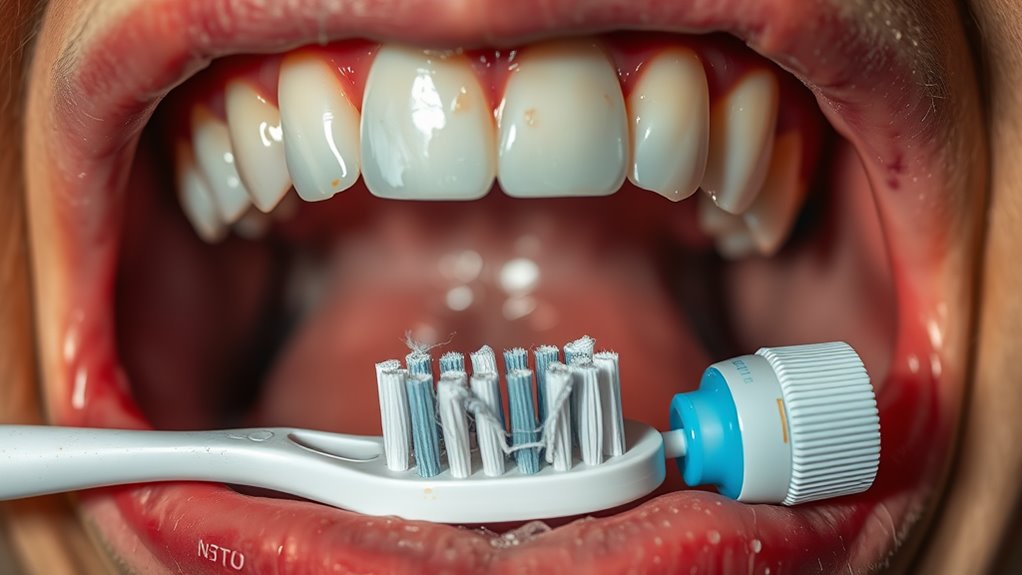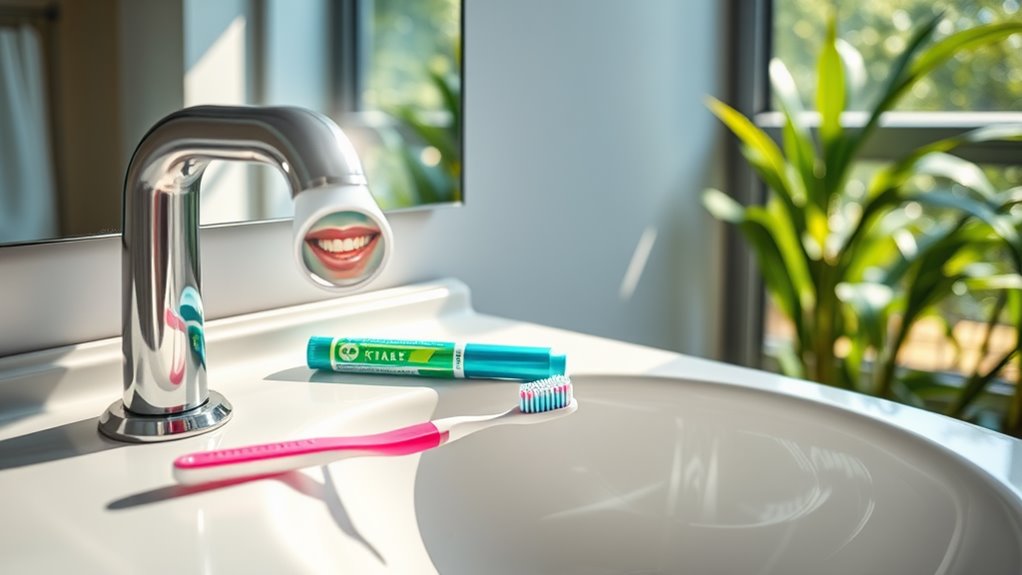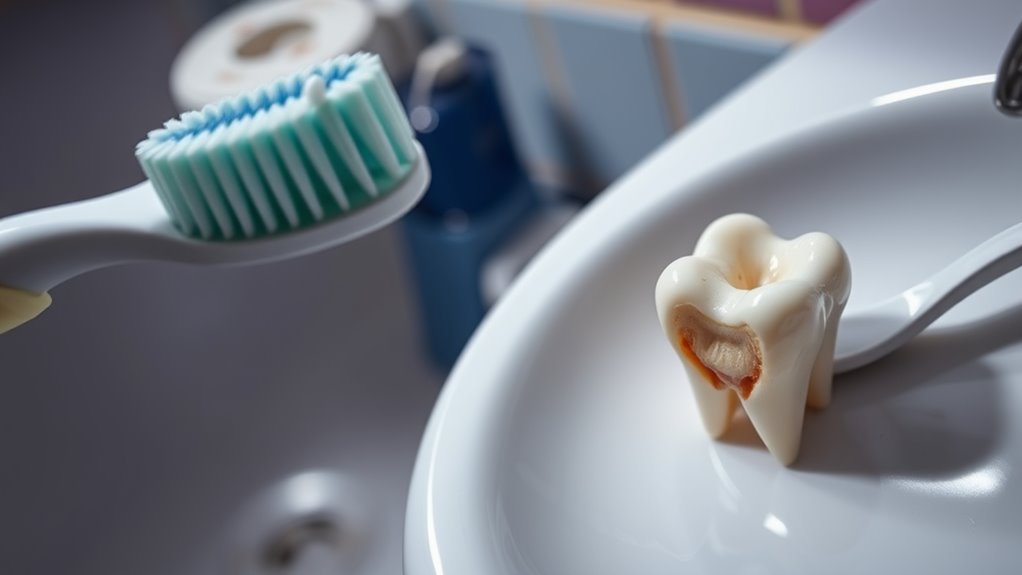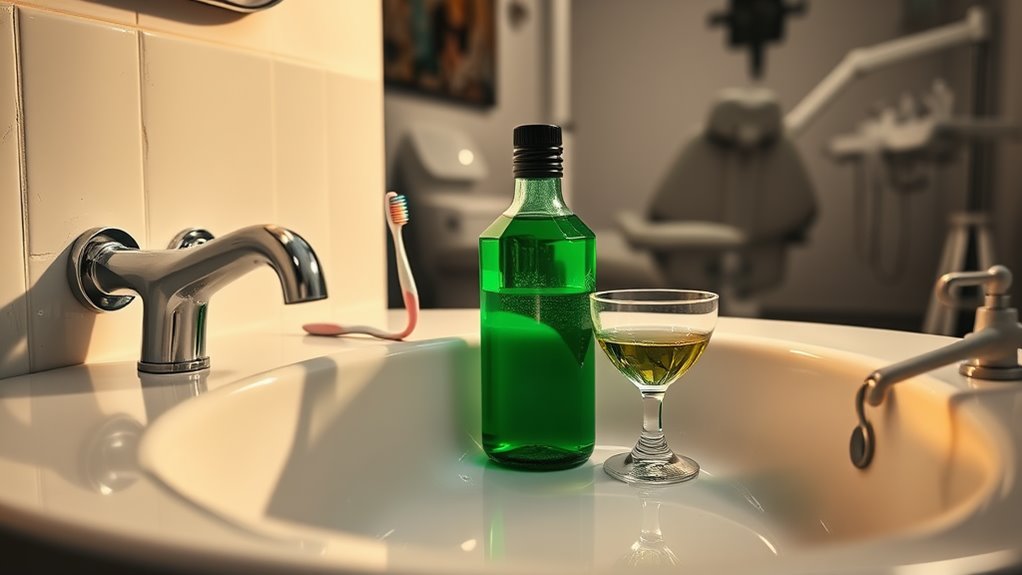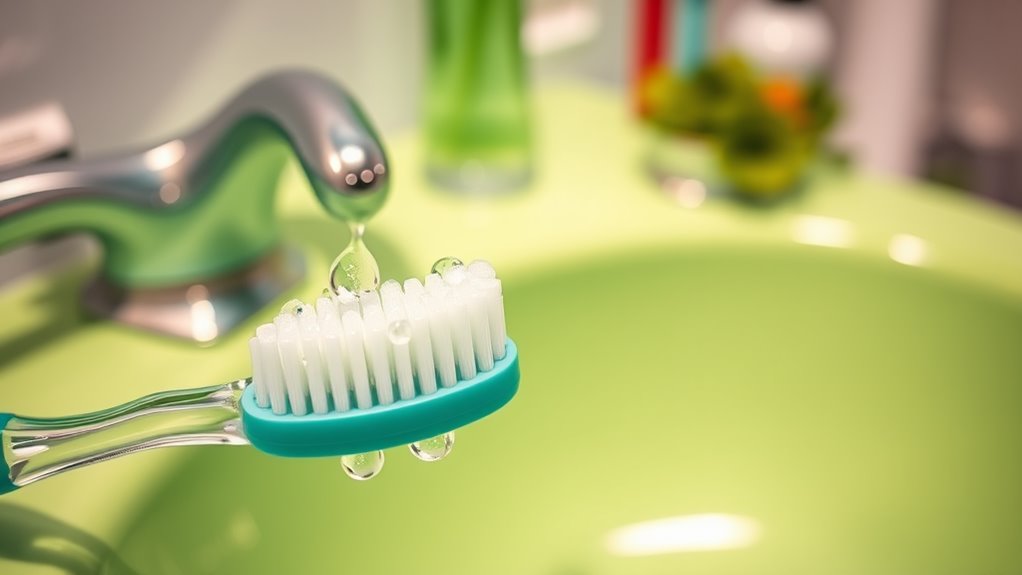10 Oral Hygiene Mistakes You’re Probably Making (and How to Fix Them!)
You might not realize it, but you could be making several common oral hygiene mistakes that jeopardize your dental health. From the way you brush to the frequency of your dental check-ups, these habits can lead to bigger issues down the line. Fortunately, there are simple fixes to help you improve your routine. Let’s explore what you might be doing wrong and how you can enhance your oral care.
Brushing Too Hard
Many people don’t realize that brushing too hard can do more harm than good. You might think you’re doing your teeth a favor, but aggressive brushing can actually lead to gum recession and enamel erosion. It’s one of the most common oral hygiene mistakes that many of us make.
Instead of scrubbing away, try a gentler approach with a soft-bristled toothbrush. This doesn’t mean you’re slacking; it means you’re taking care of your smile in the best way possible. Aim for a light touch, using circular motions to remove plaque effectively. Remember, aggressive brushing can harm your gums instead of cleaning teeth effectively.
Remember, it’s not just about getting your teeth clean; it’s about preserving their health. Join the community that values gentle care over brute force. By adjusting your technique, you’ll not only keep your teeth strong but also be part of a healthier, happier smile journey.
Let’s embrace better habits together!
Not Replacing Your Toothbrush Regularly
Brushing with the right technique is important, but using an old toothbrush can undermine all that effort. Over time, bristles wear down and lose their effectiveness, making it harder to clean your teeth properly. If you’re using a toothbrush that’s frayed or discolored, it’s time for a change.
Most dentists recommend replacing your toothbrush every three to four months, or sooner if the bristles are showing signs of wear. Think of it as a small but vital step in your oral hygiene routine that can greatly impact your overall dental health. Additionally, worn-out brushes can contribute to bacteria accumulation that diminishes your oral hygiene effectiveness.
Plus, it’s a great excuse to treat yourself to a fun new toothbrush that matches your personality! You’ll feel more motivated to brush regularly when you’ve got a fresh, vibrant tool in hand.
Skipping Flossing
Flossing may seem like an extra step in your oral hygiene routine, but skipping it can lead to serious consequences. You might think brushing your teeth is enough, but food particles and plaque love to hide between your teeth, where your toothbrush can’t reach.
If you ignore flossing, you’re opening the door to cavities and gum disease, which can affect not just your mouth but your overall health. Remember that proper flossing technique is essential to maximize plaque removal and enhance gum health.
Join your friends and family in committing to better oral care! Make flossing a fun part of your routine; try flavored floss or even set daily reminders.
You’ll not only feel fresher but also show your loved ones that you value your health. Plus, you’ll feel a sense of belonging to a community that prioritizes healthy smiles.
Using the Wrong Toothpaste
Choosing the right toothpaste can make a significant difference in your oral health. You may not realize that not all toothpastes are created equal. Some are designed for specific needs, like sensitivity or whitening, so picking the right one is essential for your smile.
Here’s a quick breakdown to help you choose wisely:
| Toothpaste Type | Best For |
|---|---|
| Fluoride Toothpaste | Cavity protection |
| Whitening Toothpaste | Stain removal |
| Sensitivity Toothpaste | Reducing discomfort from hot/cold |
When you choose a toothpaste that aligns with your needs, you’re investing in your oral health. Additionally, many users remain unaware of hidden ingredients that can impact both user experience and health. Don’t hesitate to consult your dentist for personalized recommendations. After all, a confident smile can make you feel like you truly belong in any social setting!
Rinsing Immediately After Brushing
Although it might seem instinctive to rinse your mouth right after brushing, doing so can actually wash away the benefits of the fluoride in your toothpaste.
Many people don’t realize that this simple habit can undermine their efforts for a healthier smile. Instead, consider letting the fluoride linger a bit longer to maximize its protective effects.
Here’s how to enhance your brushing routine:
- Spit, don’t rinse: After brushing, just spit out the excess toothpaste instead of rinsing.
- Wait a while: Give your mouth at least 30 minutes before rinsing or eating anything.
- Use a fluoride mouthwash: If you want to rinse, choose a fluoride mouthwash after that waiting period. Additionally, it’s important to remember that waiting 30 to 60 minutes after eating allows saliva to neutralize acids that can harm enamel.
Ignoring Your Tongue
Have you ever considered the role your tongue plays in your oral health? Many of us focus solely on our teeth, but neglecting your tongue can lead to unwanted issues like bad breath and bacteria buildup.
Your tongue is a natural home for harmful germs, and if you ignore it, you’re missing a key part of your oral hygiene routine.
To fix this, make tongue cleaning a priority! After brushing, gently scrape or brush your tongue with a tongue scraper or your toothbrush.
This simple step can help reduce bacteria and improve your overall mouth health. Plus, it can freshen your breath, making you feel more confident when chatting with friends.
Overlooking Your Diet
Your oral health isn’t just about how well you brush and floss; what you eat plays a significant role too. If you’re overlooking your diet, you might be sabotaging your smile without even realizing it. Foods high in sugar and acid can lead to cavities and erosion, while nutritious options can strengthen your teeth.
Consider incorporating these into your daily meals:
-
Crunchy fruits and veggies: Apples and carrots help scrub your teeth naturally and boost saliva production.
-
Dairy products: Cheese, yogurt, and milk provide calcium and phosphate, essential for maintaining strong enamel.
-
Green tea: Rich in antioxidants, it can help reduce bacteria and improve gum health.
Neglecting Regular Dental Check-ups
While brushing and flossing daily is essential, skipping regular dental check-ups can undermine all your hard work. You might think that if your teeth feel fine, there’s no need to visit the dentist. However, many issues can go unnoticed until they become serious.
Regular check-ups help catch problems early, preventing costly treatments down the line and ensuring you maintain that healthy smile.
Plus, visiting the dentist isn’t just about fixing issues; it’s about building a relationship with your oral health team. They’re there to support you, answer your questions, and provide guidance tailored to you.
Being proactive about your dental visits shows you care for your teeth and want to be part of a community that values health and wellness.
Using Mouthwash Incorrectly
Although mouthwash can be a great addition to your oral hygiene routine, using it incorrectly can diminish its benefits. You might think that swishing it around for a few seconds is enough, but there’s more to it. Here are some common mistakes to avoid:
-
Rinsing immediately after brushing: This washes away the fluoride from your toothpaste.
-
Using it too soon after meals: Wait at least 30 minutes to let your saliva neutralize acids first.
-
Not following the recommended time: Most mouthwashes need at least 30 seconds to be effective.
To maximize the benefits, incorporate mouthwash as a final step after brushing and flossing. It can help freshen your breath and reduce bacteria when used properly.
Failing to Clean Your Dental Tools
Neglecting to clean your dental tools can seriously impact your oral health. Your toothbrush, floss, and tongue scraper aren’t just tools; they’re your allies in maintaining a bright smile and fresh breath.
If you’re not cleaning them regularly, you’re inviting bacteria to thrive, which can lead to dental issues you definitely want to avoid.
Make it a habit to rinse your toothbrush after each use and store it upright to dry. Replace it every three months or sooner if the bristles are frayed.
Don’t forget to clean your tongue scraper and floss holder, too! A simple rinse with warm water can do wonders.
